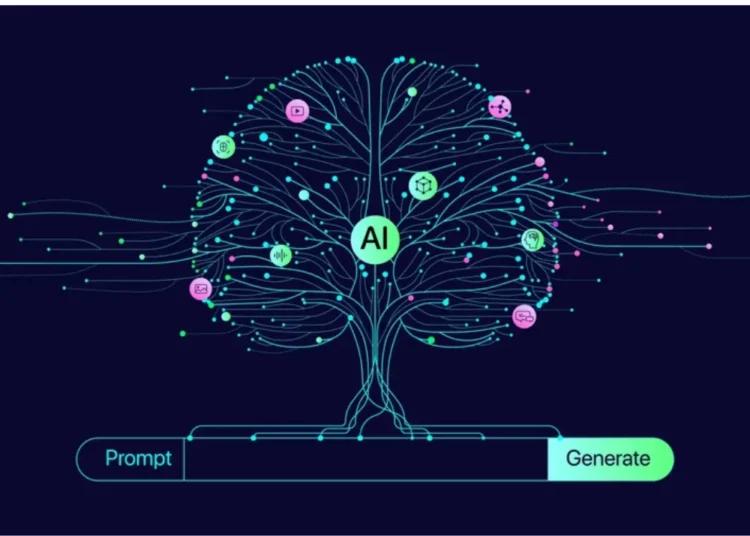Alibaba has made a significant leap in AI technology by releasing its new multimodal AI model, Qwen2.5-Omni-7 B. This latest innovation is designed to process diverse inputs, including text, images, audio, and video, while offering real-time text and natural speech responses. Alibaba’s move to open-source this model places it at the forefront of the generative AI race, with over 200 models now available for developers.
What sets Qwen2.5-Omni-7B apart from others is its performance across all modalities and its ability to set a “new benchmark” for real-time voice interaction, natural speech generation, and the execution of end-to-end speech instructions. Despite having a relatively modest 32 billion parameters, the model outperformed larger models, such as DeepSeek’s R1, which boasts a staggering 671 billion parameters, particularly in areas like mathematics, coding, and general problem-solving.
In another impressive comparison, Alibaba’s QwQ-32B outshone OpenAI’s o1-mini, which contains 100 billion parameters and excels in various capabilities. The QwQ-32B is now available on Hugging Face, the largest open-source AI model community, allowing developers to tap into this cutting-edge technology.
One of the key advantages of Qwen2.5-Omni-7B is its compact size and versatility. The model can be deployed on edge devices, including smartphones, maintaining high efficiency without sacrificing performance. Its multimodal nature also enables it to power agile, cost-effective AI agents that can serve in various real-world applications.
Alibaba envisions the model transforming everyday life in several ways. For example, it can assist visually impaired individuals by providing real-time audio descriptions to help them navigate their surroundings. It could also offer step-by-step cooking instructions by analyzing videos of ingredients or enhance customer service experiences by enabling AI-powered dialogue systems that truly understand customer needs.
As Alibaba continues to expand its AI footprint, the company has made a strong commitment to this technology, announcing plans to invest a staggering $53 billion over the next 3 years wherein it will enhance its cloud computing and AI infrastructure. This is a significant increase over its previous decade of investment in this space, underscoring its ambition to lead the AI revolution.
Adding to its momentum, Alibaba recently secured major partnerships with tech giants. Last month, the company confirmed a collaboration with Apple to integrate AI into iPhones sold in China. Furthermore, it also extended a strategic partnership with BMW, helping to accelerate the integration of AI into the carmaker’s next-generation intelligent vehicles.
Alibaba CEO Eddie Wu expressed the company’s commitment to pushing the boundaries of AI, noting, “We aim to continue to develop models that extend the boundaries of intelligence… and we want to keep pushing out those boundaries to create more and more opportunities.” With its bold advancements and ongoing investments in AI, Alibaba is not just changing the landscape of technology but also paving the way for smarter, more accessible AI applications across industries.
Stay ahead in AI innovation—join IMPAAKT for expert insights and the latest advancements in transformative technology!











